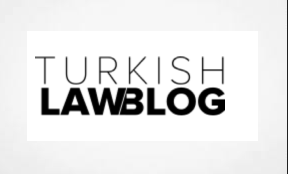05.02.2025
Hatice Ekici Ta?a
Sümeyye Uçar
Hatice Sahranç
Artificial intelligence (“AI“) technologies, especially those that generate creative outputs, have been posing questions all around the world in terms of intellectual property law. Accordingly, the question of whether works generated by AI qualify for copyright protection requires a reevaluation of concepts such as creatorship, individuality, and rights ownership. This situation is not so different in Turkey.
The Turkish legislation governing the intellectual property rights, the Law No. 5846 Intellectual and Artistic Works (“Copyright Law”), defines “work” as an intellectual and artistic product that bears the imprint of their creator’s individuality and falls within a category such as literary and scientific works, musical works, fine art works, or cinematographic works. Based on this definition, for an output to qualify for legal protection as a work, it must satisfy two fundamental criteria; (i) the work must bear the imprint of the creator’s individuality, and (ii) the work must fall under one of the types of works specified in the law (literature and science, music, fine arts, cinematography).
To benefit from legal protection under the Copyright Law, a work must be a result of intellectual and artistic effort and must be an output of a person who is the creator. The definition of a creator (i.e. the person who creates the work) is built on the notion of a human element conducting a creative act, necessitating the existence of a person.
As per the prevailing scholarly opinion, it is argued that creating a work of intellectual value requires creative effort and that the attributes, creativity, and style reflecting the owner’s intellectual input are unique to natural persons. This perspective is supported by the decision of the 11th Civil Chamber of the Court of Cassation dated February 4, 2015 (Case No. 2014/16277E., Decision No. 2015/1285K.), which provides a similar analysis to the doctrinal view: “According to Articles 1 and 2/3 of Law No. 5846 on Intellectual and Artistic Works (FSEK), the owner of a work is the individual who creates it. As the plaintiff, the Turkish Standards Institute (TSE), is an institution established under Law No. 132 with legal personality, it cannot be considered the author of the work since it lacks creative activity.” The court thereby concluded that the author of a work must be a natural person capable of engaging in creative activity.
First, this brings the question of AI’s legal personality to the forefront. Under Turkish law, there are two types of persons: natural persons and legal persons. While natural persons refer to individuals as living beings, legal persons refer to organizations that possess rights and obligations under the law but lack a physical presence like natural persons. Under the applicable Copyright Law in Turkey, legal entities cannot be owners of a work since they do not engage in intellectual effort; however, they can hold the economic rights over the work.
How AI fits within this legal framework remains a subject of debate. Some legal scholars advocate for considering AI as having legal entity, while others argue that AI should only be granted limited legal status. According to “limited legal status” doctrine, AI would be treated as a tool and assigned only specific functions and responsibilities. For instance, intellectual property rights over AI-generated works could be attributed to its owner or developer. On the other hand, Turkish law currently does not recognize AI as a person of any kind.
Secondly, the issue of creativity and individuality arises, in the context of AI-generated outputs. The concept of individuality signifies that the work reflects the creator’s own creativity and unique imprint. Since generative AI uses existing algorithms and data to generate outputs, whether it demonstrates the kind of originality associated with human creativity remains contested. Moreover, whether detailed prompts provided by a human being for a specific output would alter the consideration of individuality and creativity has not been (as far as known) challenged and evaluated yet by a Turkish court.
Lastly, in terms of rights ownership, AI’s lack of recognition as a “person” prevents it from possessing legal capacity or the ability to acquire rights and liabilities. Consequently, AI cannot independently hold rights or obligations, nor can it create rights or liabilities through its actions.
Similarly to Turkish law, many legal systems worldwide reject the notion of AI as a creator and emphasize the human element in the creative process. When evaluated in terms of individuality and intellectual product criteria, AI-generated outputs fall short of the creative process associated with human authorship, making their protection under copyright law challenging. However, the possibility of technological and legal developments bringing a new perspective to this issue should not be overlooked.
In conclusion, under Turkish law and Copyright Law, it is currently not possible for AI to hold intellectual property rights and AI’s recognition as an independent creator does not align with the existing legal infrastructure. Nonetheless, considering the economic value and societal benefits generated by AI, the amendments to the existing regulations or establishment of a new legal regime to govern AI outputs are essential.




